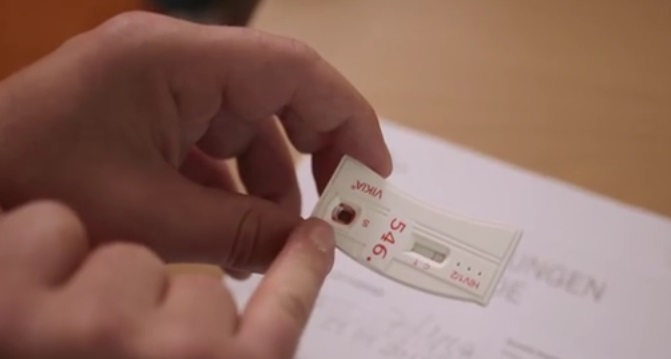
In the first part of our interview with Jens Ahrens from the Berlin AIDS service organisation Aids-Hilfe, the focus was on counselling before a rapid HIV test. But what does he do if the test is positive?
Suppose a rapid test shows that the other person is positive. What then?
At the beginning, we inform you factually that the test was reactive. This means that although an HIV infection still needs to be definitively confirmed in the laboratory, it is very likely. Professionally performed rapid tests are quite accurate. There is therefore little point in giving false hope. However, the similarities end with this factual message. Every conversation is different. It depends on the reaction of the test person and the questions they ask afterwards.
How do most people react to the positive result?
Often very rigid. Most withdraw into themselves for minutes at a time. Some also start to cry. Both are completely ok. I respond to their emotions with compassion, without feeling sorry for them. I show that I stand by my counterpart today and will continue to do so in the future.
Is there such a thing as comfort in a positive result?
The information comes as a shock to most people. It is usually followed by a crisis that can last for days or even weeks. Talking helps during this time, whether with your best friend or with a professional counsellor. We convey that HIV does not mean the end. A largely normal life with the virus is possible.
When does education about living with HIV begin?
I only provide information about the next steps once the other person is reasonably receptive again. That's why there is no time limit for conversations with people who have just tested positive. If I miss an appointment with another person interested in testing as a result, a colleague takes over. I offer further counselling and we refer people to the Berlin HIV specialists.
How often can someone seek counselling after a positive test?
Our counselling service is always open to positive people during opening hours. We also have Discussion groups. Many questions only arise once the initial shock has passed. It is best for people seeking advice to write down their questions before each conversation. That's when it helps them the most. In my experience, we can really do something for people seeking advice in any situation.
On www.testhelden.info you will find all the important information about HIV and the HIV test summarised. There is also a map of Germany with more than 300 addresses of testing centres where you can be tested anonymously for HIV and receive counselling.









